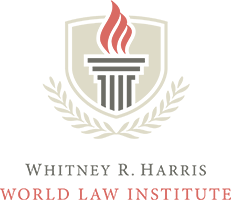
On May 16 and 17, the Whitney R. Harris World Law Institute at Washington University School of Law convened an historic meeting in Geneva, Switzerland, to discuss the possibility of drafting a new global convention on crimes against humanity. The meeting brought together members of the United Nations International Law Commission (ILC) and legal experts from around the world. It was convened as part of the Harris Institute’s multi-year Crimes Against Humanity Initiative (the Initiative). Held with support from the Geneva Academy of International Humanitarian Law and Human Rights, the conference built upon the ILC’s July 2013 decision to place the topic of a new convention on crimes against humanity on its long-term program of work. It addressed both the substance and the politics of going forward with a new treaty.
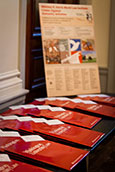
Spearheaded by Leila Sadat, the Henry H. Oberschelp Professor of Law and director of the Harris Institute, the Initiative was launched in 2008. A seven-member Steering Committee chaired by Sadat oversees the initiative. Since its launch, it has worked with more than 250 international scholars, practitioners, and jurists to draft a new global treaty on crimes against humanity. In 2011 the Initiative‘s work was published in an award-winning book—now in its second edition—titled Forging a Convention for Crimes Against Humanity (Cambridge University Press). The second edition includes English, French, and Spanish versions of a Proposed International Convention on the Prevention and Punishment of Crimes Against Humanity as well as articles from distinguished experts in the field of international law on various elements related to the problem of crimes against humanity, its definition, and its legal codification. The Proposed Convention, prepared under the leadership of Steering Committee member and Distinguished Research Professor of Law at DePaul University College of Law M. Cherif Bassiouni, has now been translated into Arabic, Chinese, German, and Russian.
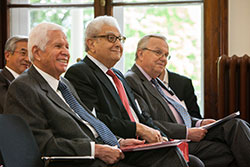
The Geneva meeting took place at the Villa Moynier, the residence of Gustave Moynier, the first president of the International Committee of the Red Cross. Villa Moynier is also the site of the drafting of the first Geneva Convention of 1864. The experts gathered—who included distinguished academics, former United Nations officials, and practitioners of international criminal law and human rights—discussed the core elements of a possible new convention. Specifically, they considered key provisions needed to prevent impunity for perpetrators of atrocity crimes and to promote inter-state cooperation. They also considered the institutional mechanisms necessary for enforcement and the political prospects of adopting a well-crafted convention.
Members of Initiative‘s Steering Committee commented upon the conference and the ILC’s vote. “I welcome this important step toward filling an unfortunate gap in international criminal law—an international convention pursuant to which states will outlaw a most egregious form of criminality—crimes against humanity,” said Richard Goldstone, former chief prosecutor of the International Criminal Tribunals for the former Yugoslavia and for Rwanda.
“Crimes against humanity are widespread and represent one of the most serious crimes under international criminal law. Therefore, they simply must be addressed in a specific convention in the same manner as genocide and war crimes,” noted Hans Corell, former Under-Secretary-General for Legal Affairs and Legal Counsel of the United Nations. “The ILC’s 2013 decision is most welcome and indicates a hope that the member states of the United Nations will now act with determination and give the ILC a clear mandate to address this matter.”
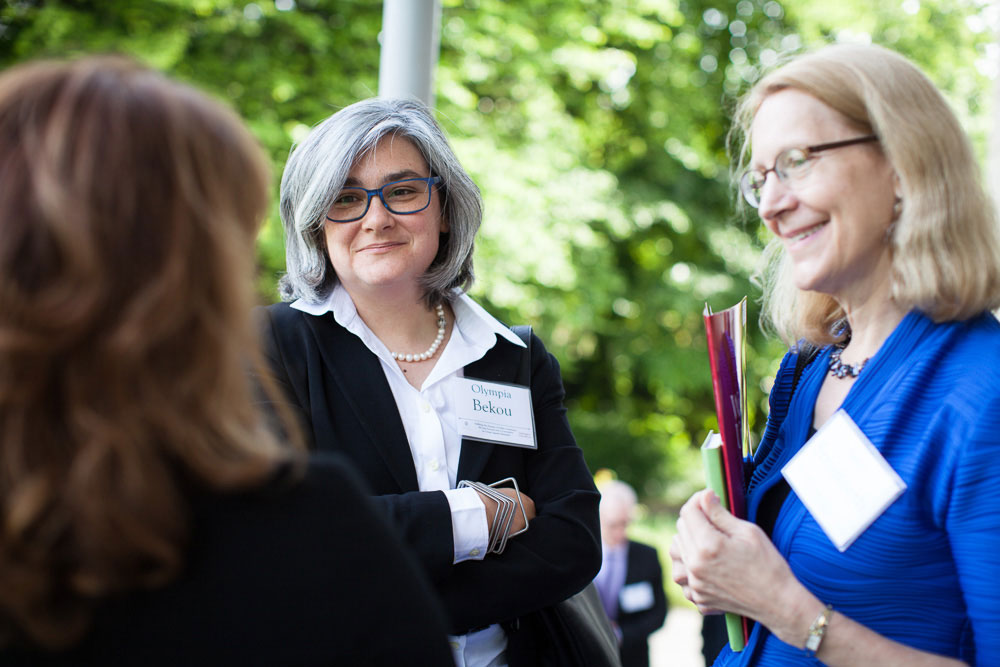
“The fact that the ILC has placed the crimes against humanity treaty on its agenda is of great significance,” added Christine Van den Wyngaert, judge at the International Criminal Court. “It shows that the UN not only has become aware of the importance of developing an enforcement system for crimes against humanity but is also making a first important step toward its realization. The world needs this crucial complement to the system already established by the International Criminal Court, and I am very pleased to see it happening.”
Sean D. Murphy, ILC member and the Patricia Roberts Harris Research Professor of Law at The George Washington University Law School, put forward the ILC proposal. As Murphy noted, “A global convention on crimes against humanity appears to be a key missing piece in the current framework of international humanitarian law, international criminal law, and human rights law.”
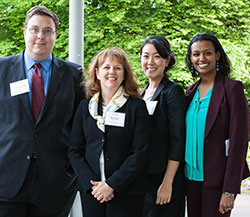
Following the conference in Geneva, members of the ILC will discuss whether or not to move the topic forward on an accelerated schedule, which would lead to the appointment of a Special Rapporteur for the topic and the drafting of articles. Meanwhile, the Initiative continues to raise public awareness of the need to combat impunity for the commission of crimes against humanity by adopting a new convention on the subject.
Alumnus Steven Cash Nickerson, JD ’85, MBA ’93, the United States Institute of Peace, and Humanity United made generous grants to support the the Initiative’s work. For more information, and to read the text of the Proposed International Convention on the Prevention and Punishment of Crimes Against Humanity, please visit http://sites.law.wustl.edu/WashULaw/crimesagainsthumanity/.
- Photo Gallery [view]
